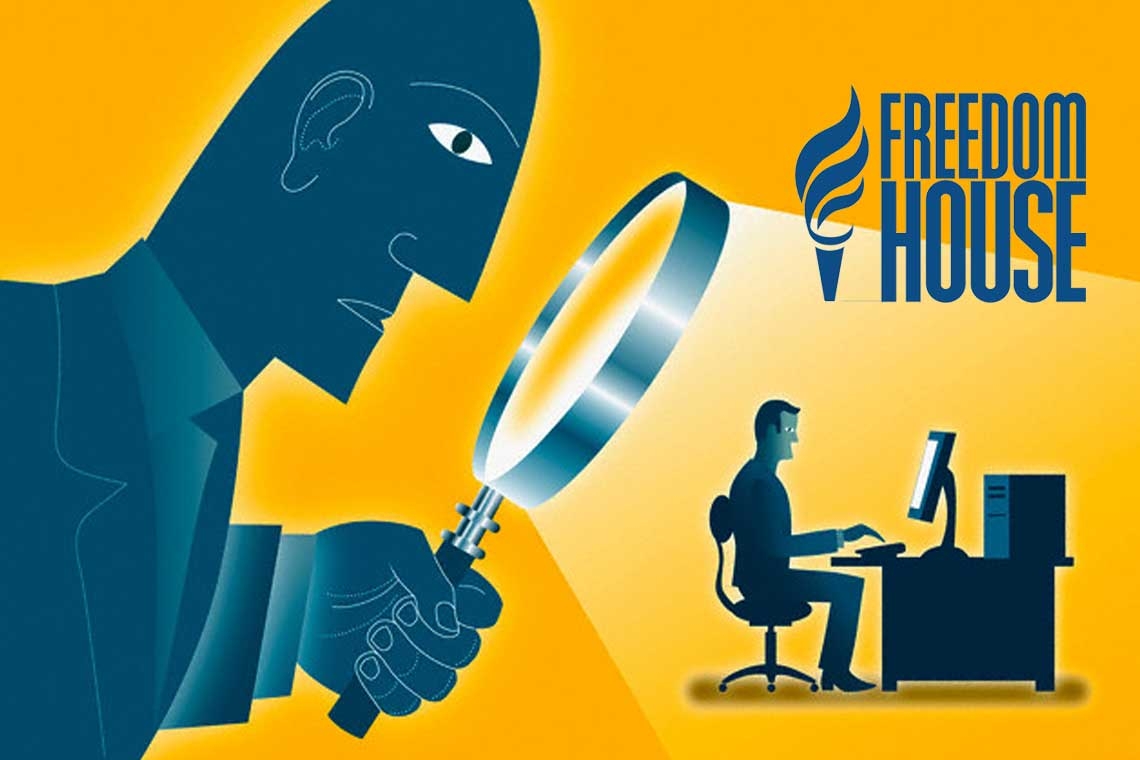Report makes note of the brutal jail sentences handed out to Kurdish politicians
The U.S.-based free speech Freedom House has released its report titled Freedom on the Net 2024: The Struggle for Trust Online , in which Turkey’s internet has again been categorized as "not free."
The report cites long prison sentences for social media posts, widespread access restrictions, content removal orders, and the spread of misinformation as key factors undermining online freedom in Turkey.
According to the report, published on Oct. 16, global internet freedom has declined for the 14th consecutive year. Out of 72 countries surveyed, internet protections have weakened in 27 countries, while 18 showed improvement.
For Turkey, the report highlights measures taken by the ruling Justice and Development Party (AKP) that increase censorship and surveillance, criminalize online speech, and promote government-aligned disinformation through online troll networks. Journalists, activists, and social media users continue to face legal charges for their online posts. The report references key developments:
- In July 2023, a temporary ad ban was placed on X (formerly Twitter) until May 2024, when it established a local office and appointed a representative in Turkey.
- In January 2024, the Constitutional Court annulled a provision frequently used for blocking and content removal on grounds of "violation of personal rights." However, the ruling had not taken effect by the report’s cutoff, and authorities continued implementing content restrictions.
- In December 2023, 17 VPN services were blocked without court orders.
- In May 2024, 20 Kurdish politicians, including former HDP co-chairs Selahattin Demirtaş and Figen Yüksekdağ, were sentenced to prison terms ranging from 9 to 42 years over social media posts dating back to 2014.
The report emphasizes a concerning trend toward authoritarianism, noting constitutional changes that facilitate the imprisonment of political dissenters. Additionally, it argues that the deepening economic crisis, the February 2023 earthquakes, and the May 2023 presidential elections were used by the government to suppress opposition and restrict public discourse.
In a press release accompanying the report, Gürkan Özturan from the European Center for Press and Media Freedom remarked on the persistence of threats to internet freedom in Turkey. While there was a minor improvement in Turkey's score due to the absence of natural disasters like the previous year’s earthquakes, he stressed ongoing connectivity issues in the affected regions. He also noted the restrictive laws imposed, particularly during election periods, including bans on news outlets and severe prison sentences for social media posts.
Globally, the report reveals a pattern of governments restricting internet access or blocking websites during elections, impacting over 25 of the 72 countries studied. Authorities have resorted to arrests, violence, and other means to suppress online speech, with at least 56 countries arresting individuals for political, social, or religious content, and 43 reporting cases of physical attacks or killings linked to online activities.
Myanmar and China rank as the worst countries for internet freedom, with Myanmar's military government intensifying censorship and imprisonment since its 2021 coup. At least 41 countries facing elections censored political, social, or religious content, while government-backed commenters manipulated information in 21 countries.
The use of generative AI in election campaigns has raised new concerns. Although some countries, like South Africa, Taiwan, and the EU, have introduced guidelines to combat misinformation, there remains a significant research gap regarding the impact of AI-generated content.
Freedom House's Freedom on the Net is an annual assessment covering 72 countries, representing 87% of global internet users. The report assesses internet freedom through a 100-point scale, evaluating indicators such as access restrictions, content limitations, and violations of user rights.



